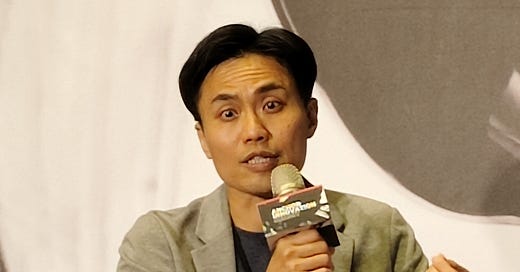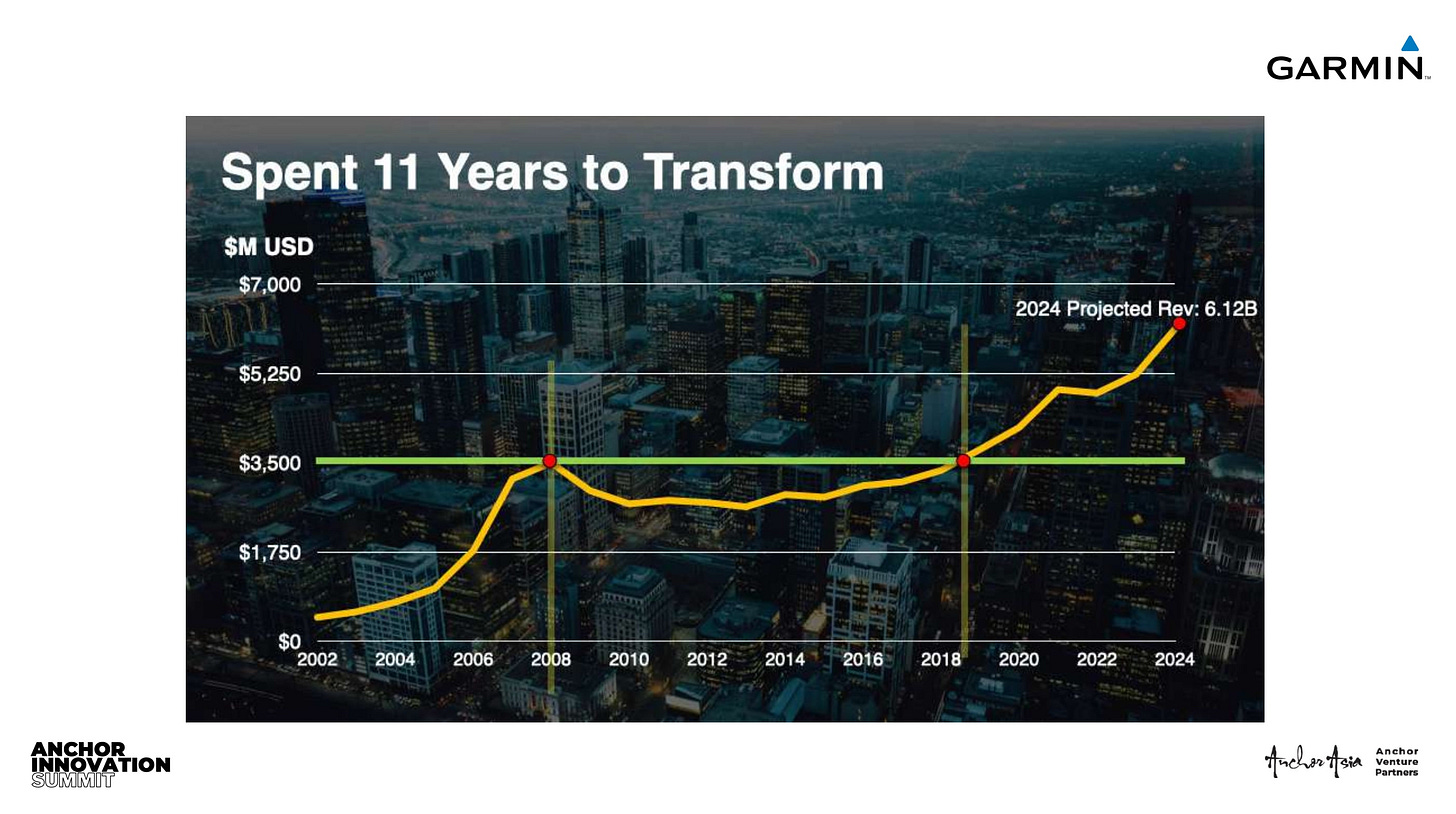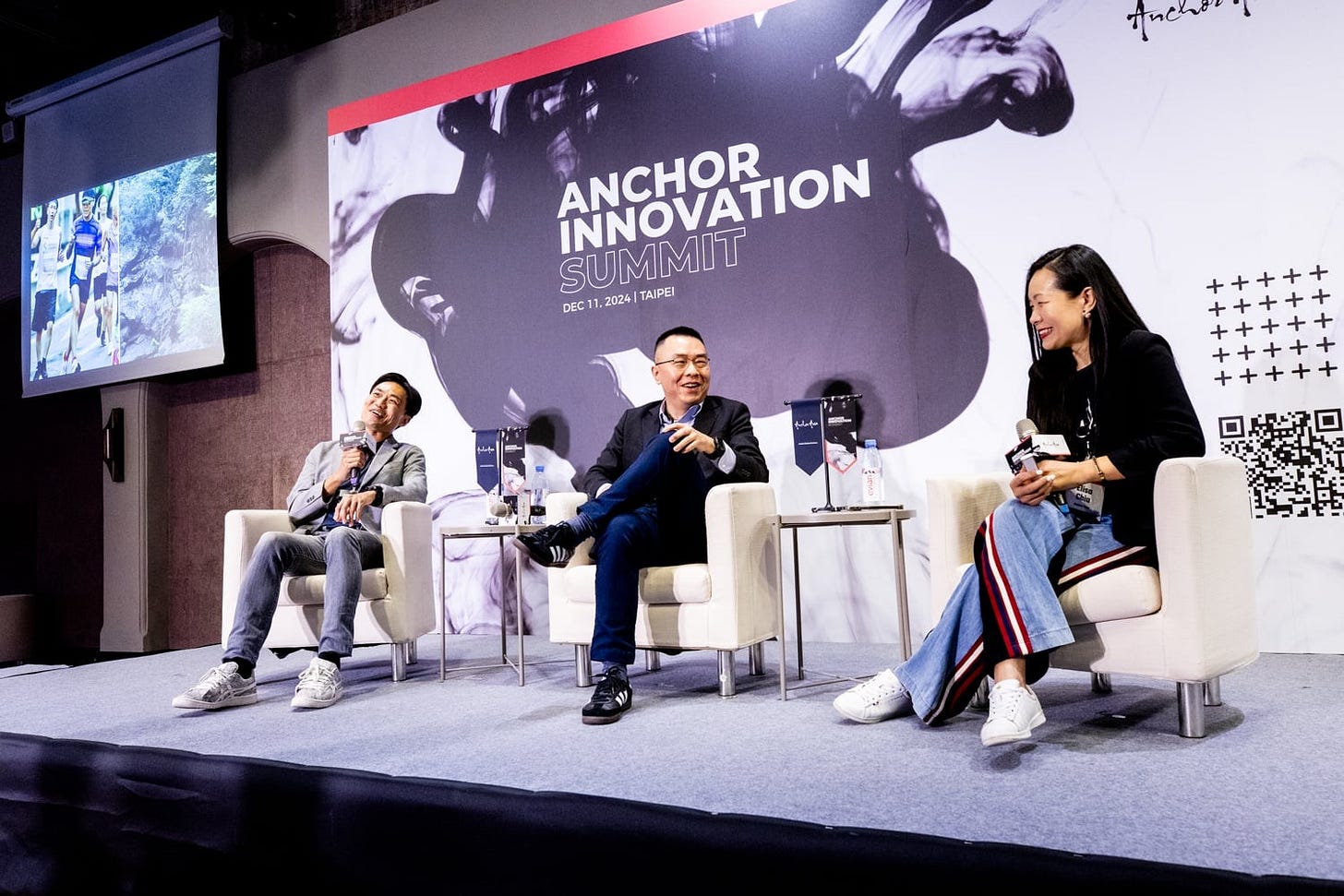Jay Shen, Managing Director of Garmin Corp’s Automotive OEM business in Asia, shared a powerful story of personal recovery and corporate reinvention during the 2024 Anchor Innovation Summit in Taipei in a panel discussion with Anchor Asia founder and CEO Elisa Chiu and Maicoin CEO Alex Liu.
Shen, a marathon runner and mountain climbing enthusiast, likened his journey of overcoming a debilitating knee injury to Garmin's remarkable transformation from a Portable Navigation Device (PND) market leader disrupted by Google to a diversified leader in wearable and automotive technology.
In January 2022, Shen suffered a severe knee injury during a mountain trail run, forcing him to set aside his past achievements and undergo surgery. The next seven months were a grueling process of relearning the basics of running, marked by slow progress and immense patience. Yet by year-end, Shen completed a full marathon in 4.5 hours, a testament to his perseverance and willingness to start over.
This personal experience mirrored Garmin’s own journey of reinvention. In 2008, Garmin dominated the PND market, holding a 33.7% share and deriving 70-75% of its revenue from navigation devices. However, the rise of smartphones equipped with Google Maps triggered a precipitous decline in PND sales. “It took us a year to sell 14 million units, while Google achieved 14 million downloads of Google Maps in just two days,” Shen recalled.
Faced with disruption, Garmin embarked on an 11-year transformation, culminating in 2019 when its revenues returned to 2008 levels. “We had to forget our past glory, set aside our ego, and learn to become embedded solution partners for our customers,” Shen explained. This shift also involved diversifying into wearable devices tailored for extreme outdoor conditions, such as diving watches capable of monitoring oxygen levels in deep waters via sub-wave technology and products designed for pilots and golfers.
In the automotive sector, Garmin developed three product lines: domain controllers for smart cabins, infotainment systems (installed in 70% of Toyota cars sold in Taiwan), and connected meters for motorcycles. Shen highlighted the rigorous process of meeting strict automotive validation requirements and the necessity of embracing “coopetition”—collaborating with competitors to meet automakers’ needs. During the COVID-19 pandemic, Garmin even shared chipsets with competitors to ensure timely car shipments, showcasing a new level of industry collaboration unimaginable in its PND days.
In a separate interview in the Taiwanology Podcast, Shen stressed the importance of continuously learning and adapting to technological advancements, such as working with chipset designers and cybersecurity providers to stay ahead in a dynamic market. His career, spanning roles at Ford Motors, BenQ, FarEasTone, and HTC, exemplifies the expertise and adaptability essential for Garmin’s ongoing transformation.
Shen’s personal and professional journeys resonate perfectly with Garmin’s transformation. He concluded his sharing on an optimistic note, highlighting Garmin’s emerging role in the future of autonomous driving. The tough lessons of reinvention and rebirth have ultimately paid off, positioning the company for sustained success in a rapidly evolving industry.





